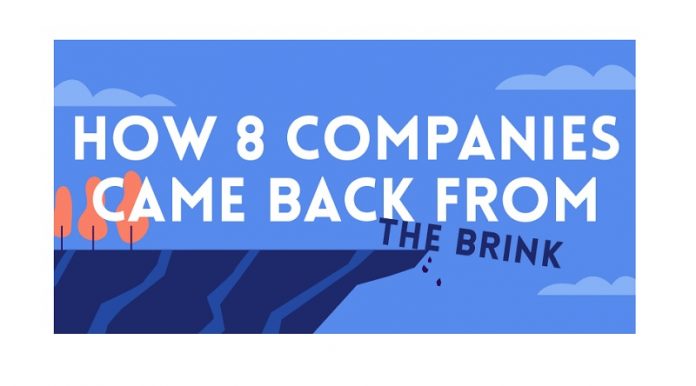The world of business is full of stories of triumph and disaster, and everyday decisions can determine whether a start-up hits the big time or a corporate behemoth completely collapses. While some of the biggest companies out there might seem all-conquering now, they, too, had times in their history where it all could have gone so differently.
Here are the stories of how 8 huge companies found themselves on the brink, yet made it back. (From Headway Capital)
Part 3. Check back tomorrow for two more companies.
Nintendo
After beginning as a trading card company in Japan in the 19th century, Nintendo took a long time to rise to dominance as the master of the video game world. In the 1960s, the company was desperately searching for a new market to move into – they tried out taxis and even ‘love hotels,’ before settling on toys and, eventually, video games. But it hasn’t been a smooth ride, as the company found itself falling behind rivals like Sony and Microsoft when console launches for the likes of Gamecube and Wii-U failed. In 2014, Nintendo posted a loss of $335 million. But the 2016 release of Pokemon GO saw shares spike 50%, and the Switch console seems to have turned Nintendo’s fortunes around for the better, becoming the fastest-selling console ever in Japan.

Netflix
Netflix was born when its founder saw the potential for an online DVD rental company, and it’s become a world-beating media company by capitalising on the popularity of streaming while generating its own content. But the transition between the DVD and online streaming business models wasn’t a smooth one. In 2011, Netflix announced that it would split its services into two, launching Qwikster for the DVD rentals. The hugely unpopular move was quickly scrapped, but not before Netflix stock collapsed and the company lost over 800,000 subscribers. That wasn’t enough to stall its rise for long, of course. Just four years later the stock was up 574%, and this year experts predicted that the company will reach 90 million US subscribers in the next decade.








